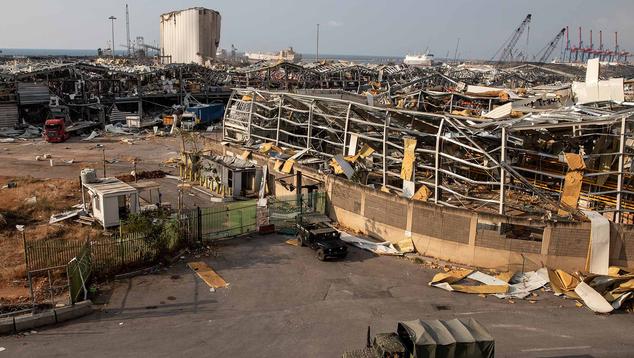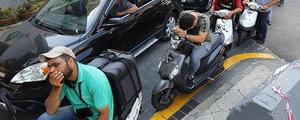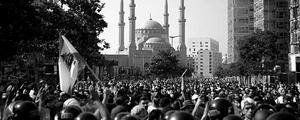Story Highlights
- Confidence in Lebanon's judicial system among lowest in world, at 16%
- More view the Beirut Criminal Court's investigation as fair than biased
- Majority in Shia community oppose continuing investigation
WASHINGTON, D.C. -- Nearly two years have passed since one of the largest non-nuclear explosions in history tore through central Beirut on Aug. 4, 2020, killing 218 and leaving 300,000 homeless. The improper storage of 2,750 tons of ammonium nitrate and the resulting catastrophe is symptomatic of decades of state failure and neglect, but the Beirut Criminal Court's inability to hold anyone accountable for the disaster is threatening to aggravate this tragedy.
As the investigation into the Beirut port explosion continues to be stonewalled by lawsuits and protests from influential senior politicians, only 16% of Lebanese expressed confidence in their judicial system in 2021. This percentage is an all-time low in Lebanon and was among the lowest in the world in 112 countries where Gallup asked this question last year.
Judge Tarek Bitar, head of the Beirut Criminal Court, took over as lead investigator into the explosion after another judge was removed in February 2021 following legal challenges by officials whom that judge had accused of negligence. Widely regarded as nonpartisan, Bitar has thus far withstood similar calls for his removal, as well as threats to his safety.
When asked if Bitar's investigation into the 2020 port explosion was being conducted fairly or with bias against certain groups, more Lebanese say the investigation is a fair one (35% versus 23%). Given the political sensitivity of the topic, however, more than four in 10 Lebanese (42%) did not express an opinion. When one looks only at Lebanese who expressed an opinion, 61% say the investigation is fair.
In scenes reminiscent of Lebanon's 1975-1990 civil war, Hezbollah's struggle to neuter Bitar's investigation took a violent turn last October after supporters of the Iran-backed party and its allies were targeted by snipers while marching to demonstrate against attempts to question former government ministers.
The specter of renewed civil conflict over efforts to pursue accountability in the port explosion lingers over the investigation and may temper the enthusiasm of those who might otherwise have demanded justice. Still, by a margin of more than 2 to 1, Lebanese adults say that Bitar should be allowed to continue his investigation. When one looks only at Lebanese who give an opinion, two in three (67%) say that the investigation should continue.
Investigation Popular Among Most Lebanese Communities, With One Exception
There is widespread support for the continuation of the port investigation among most major Lebanese confessional groups, including 84% of Christians who express an opinion and a similar rate among Sunnis (88%). Only within Lebanon's Shia community -- which largely gives its support to Hezbollah and allied political groups -- does significant opposition to the Beirut port investigation exist. Slightly fewer than one in four Lebanese Shia who express an opinion believe that the investigation should continue.
Bottom Line
The fate of the port investigation represents a test of the Lebanese state's legitimacy. The Lebanese judiciary's ability to make Hezbollah and other powerful political factions answerable to the state is tenuous at best. The continuation of the Bitar investigation represents a rare democratic challenge from within the Lebanese government to the country's powerful political establishment, most of which have strong reasons not to have their own culpability examined in the port explosion case.
Lebanese are used to getting little from their government, to the point where most Lebanese say they would migrate from the country if they could. But while Beirut port authorities and other officials failed to keep citizens safe, the failure of the judiciary to hold anyone accountable would prove the state's inability to help prevent the next disaster.
The port explosion investigation is widely viewed by Lebanese as fair and has a popular mandate to continue. Recent shortcomings by Hezbollah's political allies in parliamentary elections highlight the disconnect between Hezbollah's stonewalling of the investigation and Lebanese public opinion.
As a fragile state, Lebanon and its national institutions continue to require international support, if only to ensure that the country's ills do not spread beyond its borders. An independent judiciary in Lebanon capable of addressing rampant corruption and pushing back against nondemocratic tendencies represents one of the surest ways to strengthen the government's sovereignty and the nation's wellbeing.
To stay up to date with the latest Gallup News insights and updates, follow us on Twitter.
For complete methodology and specific survey dates, please review Gallup's Country Data Set details.
Learn more about how the Gallup World Poll works.




